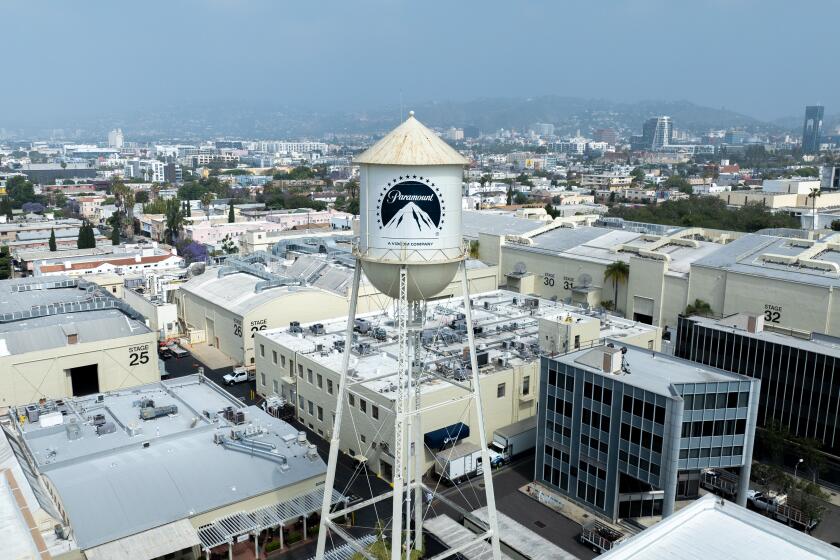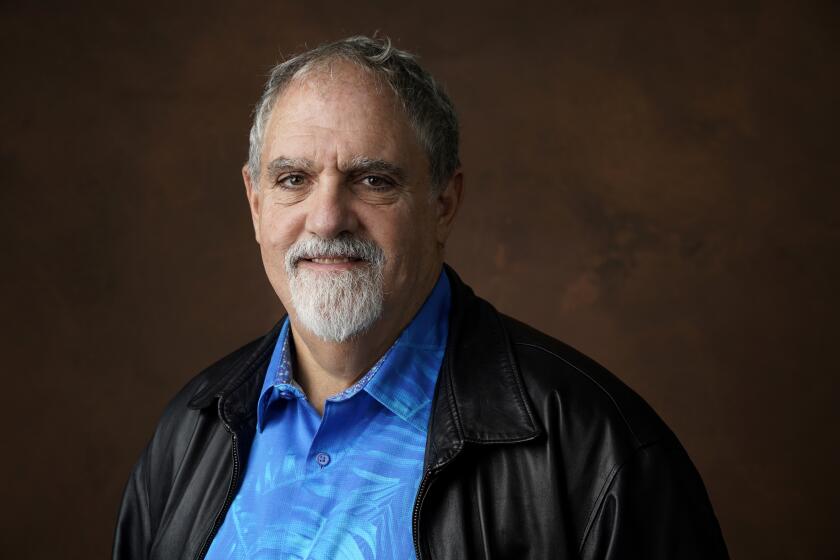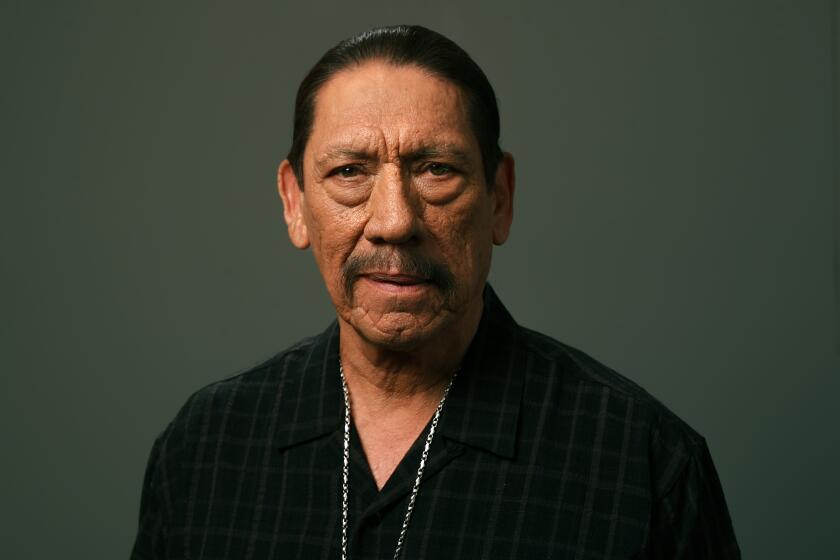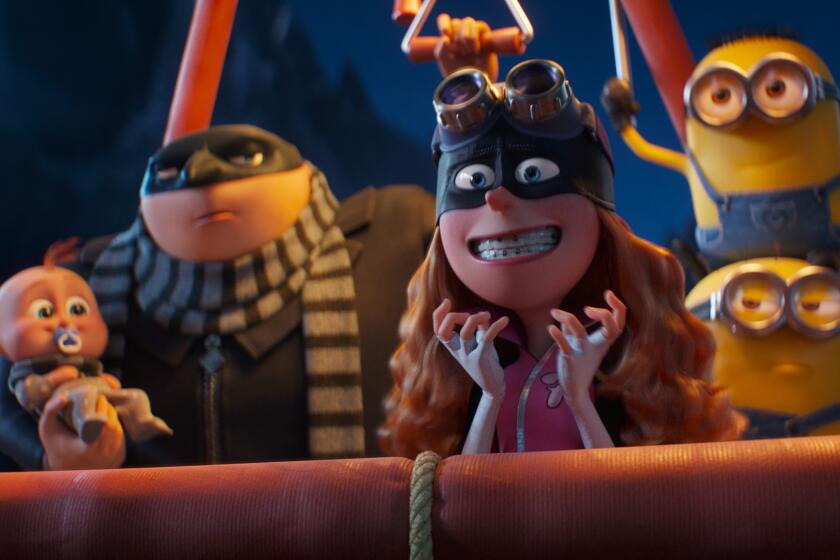Toronto heats up fall festival season
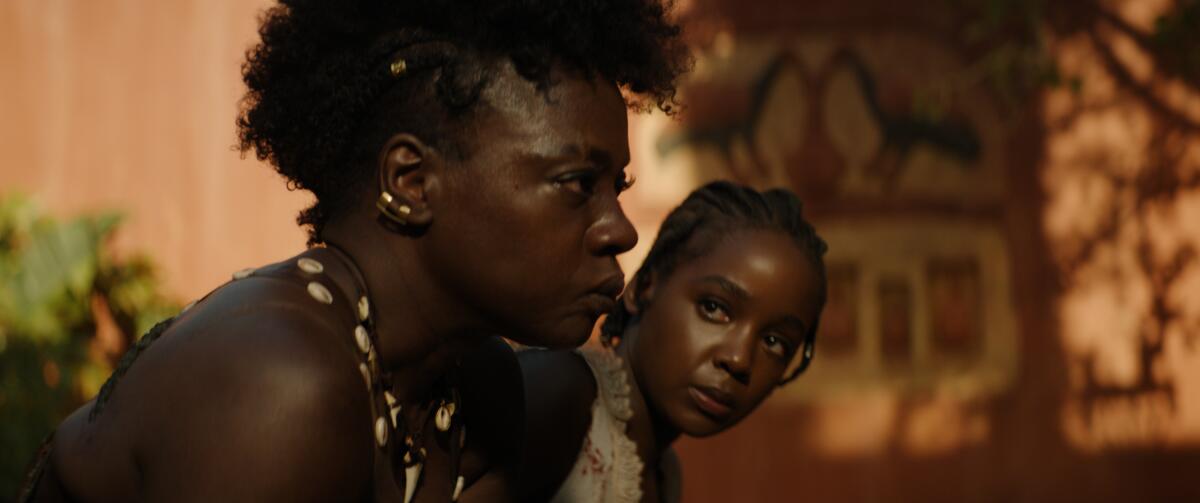
Hello! I’m Mark Olsen. Welcome to another edition of your regular field guide to a world of Only Good Movies.
Only good movies
Get the Indie Focus newsletter, Mark Olsen's weekly guide to the world of cinema.
You may occasionally receive promotional content from the Los Angeles Times.
More from Venice and Telluride. This may not be a boom time for new releases in theaters, but there are a lot of new movies to talk about, as the fall festivals have premiered many titles coming out over the next few months.
From Telluride, Josh Rottenberg gave a survey of the festival winners and losers, coming away from what many felt was a muted event overall. Luca Guadagnino’s “Bones and All,” Sarah Polley’s “Women Talking,” Todd Field’s “Tár,” James Gray’s “Armageddon Time” and Alejandro G. Iñárritu’s “Bardo” were just some of the movies that got people talking one way or the other at the fest.
Glenn Whipp took in the Oscar chances of “Bones and All,” a cannibal romance that stars Timothée Chalamet and Taylor Russell in what Glenn described as “a love story spiritually attuned to Terrence Malick’s ‘Badlands’ and possessing an acute understanding of what people on society’s margins must do to survive.”
Justin Chang wrote more deeply about a number of films from the festival. He paired “Tár” and Sam Mendes’ “Empire of Light,” as well as “Women Talking” and “Bardo.”
Josh spoke to Iñárritu in Telluride. “Bardo” is the filmmaker’s first movie made in his native Mexico since his debut, “Amores Perros,” and is a deeply personal exploration of the meaning of life and art. Which also meant that the two-time winner of the directing Oscar seemed particularly stung by some of the negative reactions out of Venice and Telluride.
As he said, “Every artist has the right to express himself the way he wants without being accused of being self-indulgent. I hope somebody can turn down that narrative, which is very reductive and a little racist, I have to say.”
Justin wrapped up his Telluride coverage with “Bones and All,” Sebastián Lelio’s “The Wonder” and Laure de Clermont-Tonnerre’s “Lady Chatterley’s Lover.”
And Justin also wrote about Olivia Wilde’s “Don’t Worry Darling,” which premiered at Venice amid much tabloid gossip and internet chatter about the behind-the-scenes drama during its production and ongoing press tour.
Enjoying this newsletter? Consider subscribing to the Los Angeles Times
Your support helps us deliver the news that matters most. Become a subscriber.
Toronto Film Festival
The Toronto International Film Festival is in full swing this weekend, and we have a team of reporters and photographers covering all the action.
Michael Ordoña, Jen Yamato and myself ran down 21 of the top world premieres at the festival, including Rian Johnson’s “Glass Onion: A Knives Out Mystery,” Gina Prince-Bythewood’s “The Woman King,” Steven Spielberg’s “The Fabelmans,” Tyler Perry’s “A Jazzman’s Blues” and many more.
As TIFF CEO Cameron Bailey said of the fall festival season, “Each festival has its own kind of special sauce. And in Toronto, our audience has historically been that for us — their ability to find films that really break out and support them and be excited about them from their launches here. And so where filmmakers and companies want that ... Toronto audience reaction, then that becomes a priority.”
I spoke to Perry for a story publishing soon about the period romantic drama “A Jazzman’s Blues,” which marks his first time at TIFF and the first of his movies to premiere at a major film festival. Perry wrote the script some 27 years ago but always knew he would come back to it.
“I always knew that I would do it at some point,” he said. “I just never knew exactly when. My entire focus over the years was about success. As a Black filmmaker in Hollywood, especially in years past, you could not have a flop, and taking a chance on a period piece such as ‘Jazzman’s Blues’ was really a risk. So I stuck with what I knew would work, which is all of my Madea, bigger, broader shows, ‘Why Did I Get Married?’ shows. Because I wanted to build a brand and build the studio and build all of those things that I have now, and then I could return to ‘Jazzman’ and other films that I’d love to write and produce as well.”
Thursday night saw the premiere of “Weird: The Al Yankovic Story,” which stars Daniel Radcliffe as the famed parody musician in a parody of musical biopics. The real Yankovic co-wrote the screenplay. Radcliffe talked about the movie’s relationship to reality: “I’m playing a version of Al, I think it’s fair to say … a version that does insane things that this man would never do.”
I also spoke to Emma Corrin about the film “My Policeman,” directed by Michael Grandage and premiering at TIFF on Sunday, in which Corrin stars alongside Harry Styles and David Dawson in a story of a love triangle and the decades-long impact of a deep betrayal.
Corrin said of what drew them to the part: “It was dealing with issues that were obviously incredibly prevalent in the ’50s, with homosexuality being illegal, but also I think [the film] speaks to a lot of issues still very prevalent today. I think that people will go to see it thinking this is going to be something about a different time. And actually, maybe it’s what we should be talking about now.”

Enjoying this newsletter? Consider subscribing to the Los Angeles Times
Your support helps us deliver the news that matters most. Become a subscriber.
‘Barbarian’
Written and directed by Zach Cregger, until now best known as a sketch comedian, “Barbarian” is an unsettling horror tale. Tess (Georgina Campbell) arrives late to a rental house to discover it‘s already occupied by Keith (Bill Skarsgård). They decide to share, which seems to be working out until they find themselves lured into the basement. Things get worse from there. The movie is in theaters now.
For The Times, Katie Walsh wrote, “Consider this permission to stop reading this review right now and just buy tickets. Do not watch trailers, do not read reviews, proceed directly to the theater for one of the most brilliantly executed, sharply incisive and wildly scary horror films of the year. How can one describe ‘Barbarian’ without giving away all the best twists and turns? Well, it’s a triumph of what could be a new subgenre: Airbnb horror.”
For the New York Times, Beatrice Loayza wrote, “Cregger isn’t as concerned with making bold political points as he is with orchestrating a snappy spectacle that goes a mile a minute. #MeToo, gentrification, the brutal underbelly of the Reagan era — all these elements fit like puzzle pieces into a broader nightmare that lets the context speak for itself. ‘Barbarian’ is all the more creepy — and fun — because of it.”
For the Hollywood Reporter, Frank Scheck wrote, “Director-screenwriter Cregger displays an obvious perverse glee in guiding his audiences through his outlandish twists and turns. If the ultimate revelations involving a truly terrifying character (Matthew Patrick Davis, in a virtuoso turn) tend toward the formulaic, they don’t detract from the overall effect, and the hearts of cynics will be gladdened by the very dark ending, which would have made George Romero smile.”
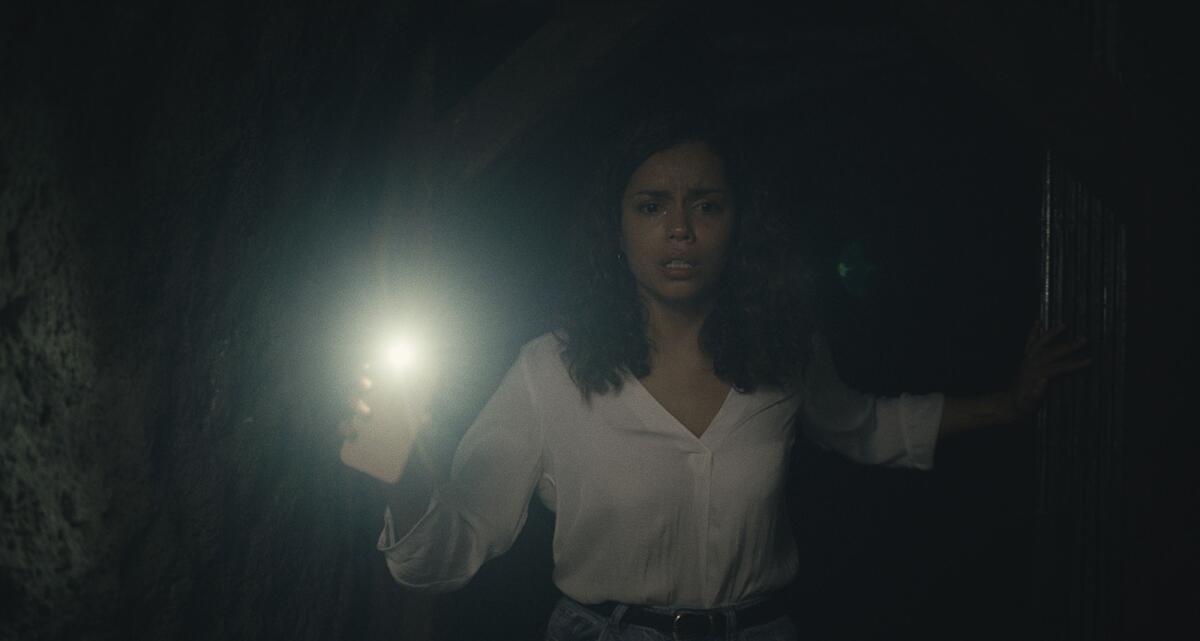
‘Loving Highsmith’
Directed by Eva Vitija, “Loving Highsmith” is a documentary portrait of Patricia Highsmith, author of “Strangers on a Train,” “The Talented Mr. Ripley” and “The Price of Salt” (adapted into the film “Carol”). Gwendoline Christie reads from Highsmith’s journals and manuscripts as narration to the film, which attempts to connect Highsmith’s dark-hearted fiction with a lovelorn life.
For The Times, Gary Goldstein wrote, “Given that a presence as private and enigmatic as famed suspense author — and unwitting queer icon — Patricia Highsmith may not make for the easiest cinematic dissection, the documentary ‘Loving Highsmith’ earns points for unearthing as much as it does. … [The film] is a well-intentioned effort; a respectable start. But perhaps a more definitive and dimensional documentary — or even narrative feature — about this singularly intriguing talent will still be made.”
For the New York Times, Amy Nicholson wrote, “It’s hard to imagine the author herself would have approved of the documentary’s flowery narration and sentimental acoustic score. More impactful is the realization that Highsmith’s chilliest calculation was correct: She’d inspire more acclaim — and less moral outrage — exposing her murderous hatreds than her strangled loves.”
For the Washington Post, Ann Hornaday wrote, “Filmmaker Eva Vitija explores the life and career of author Patricia Highsmith through the lens of her love life, a form of psychobiography that fitfully brings the subject into focus, only to render her elusive in the end. … Ultimately, ‘Loving Highsmith’ provides a valuable addition to the larger record of the author’s enigmatic life, rather than a comprehensive chronicle itself. Which might be altogether fitting for a woman who always seemed to prefer to remain just out of reach.”
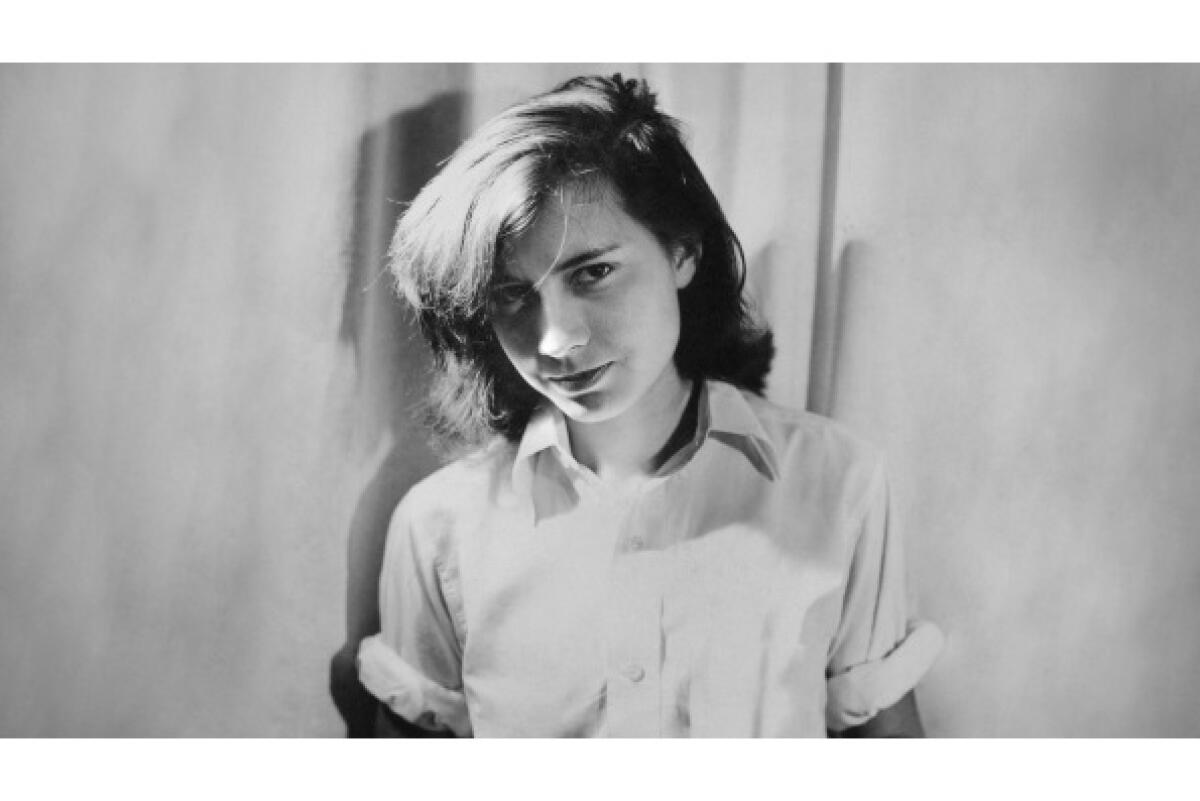
Only good movies
Get the Indie Focus newsletter, Mark Olsen's weekly guide to the world of cinema.
You may occasionally receive promotional content from the Los Angeles Times.

